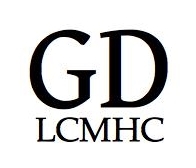PTSD, Anxiety, Depresson, Anger, and Eating Disorders can feel like they are consuming your life. You may feel alone, but you don't need to be. I specialize in helping clients with the following issues:
PTSD:
PTSD is made up of three major components: Re-experiencing (nightmares, flashbacks, intrusive memories), Over-arousal (irritability, anger, anxiety, and heightened reactions to anything that reminds you of a stressful experience from the past), and Avoidance (being unable to feel close to those around you, avoiding places that remind you of a traumatic experience, and loss of pleasure in activities you once enjoyed).
Anxiety:
Anxiety is a consistent sensation of fear often paired with physical sensations, including shortness of breath, heart pounding, a general sense of agitation, and chills.
Depression:
Depression is a persistent low mood and inability to enjoy activities that you used to enjoy. There are often other symptoms, such as uncontrollable crying, inability to experience emotions, a sense of hopelessness, loss of concentration, changes in eating and sleeping habits, and, occasionally, suicidal thoughts.
Anger:
Anger is a normal emotion, but sometimes people do not how to effectively manage it. If anger is not managed well, it can lead to verbal and physical fights and relationships falling apart.
Eating Disorders:
Often people with Anorexia Nervosa see themselves as severely overweight, even when they are not. This results in restriction of eating. This disorder is often related to PTSD, Anxiety, Depression, and/or OCD.
People with Bulimia Nervosa binge eat and then, in order to avoid weight gain from over eating, purge or use laxatives. Bulimia is often related to trauma and negative self image.
In addition to these specialties, I also work with the State of New Hampshire's Child Impact Program and the iHope Network. My profile is listed at Psychology Today, and I have worked with the Dartmouth Psychiatric Research Center.

